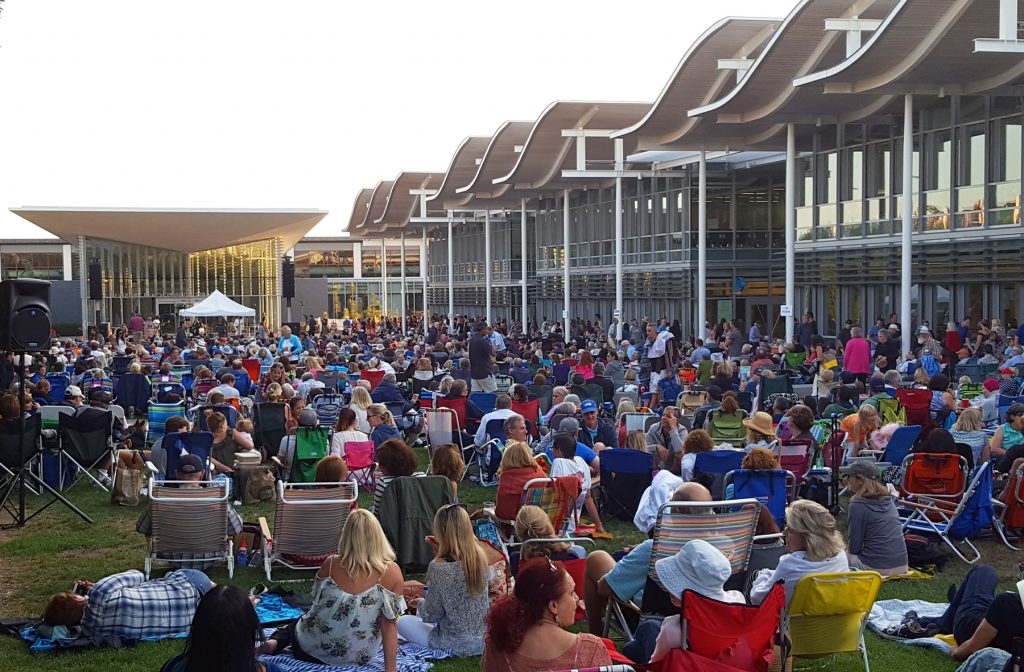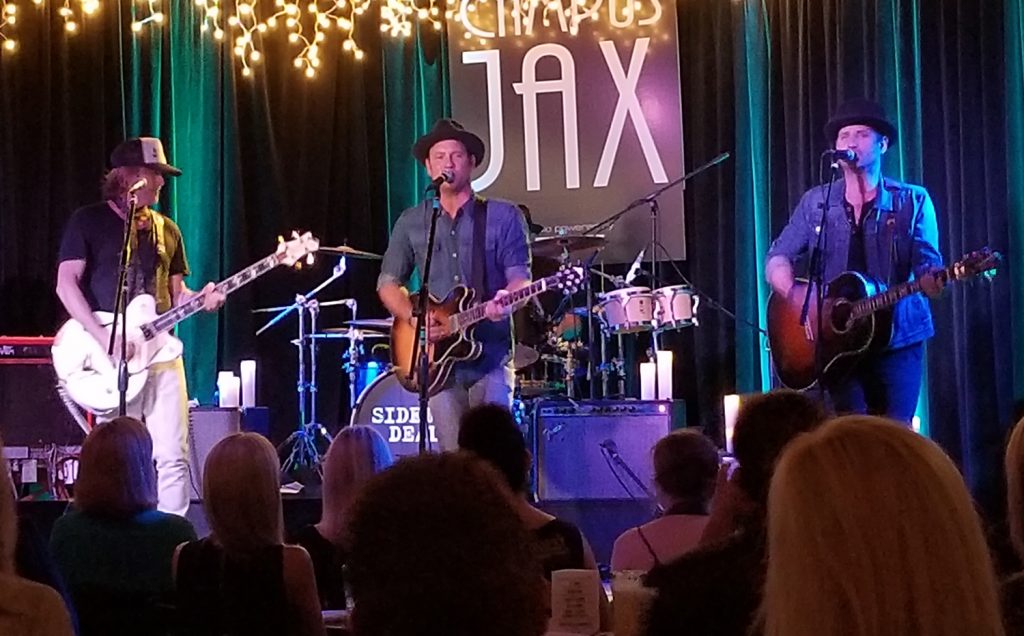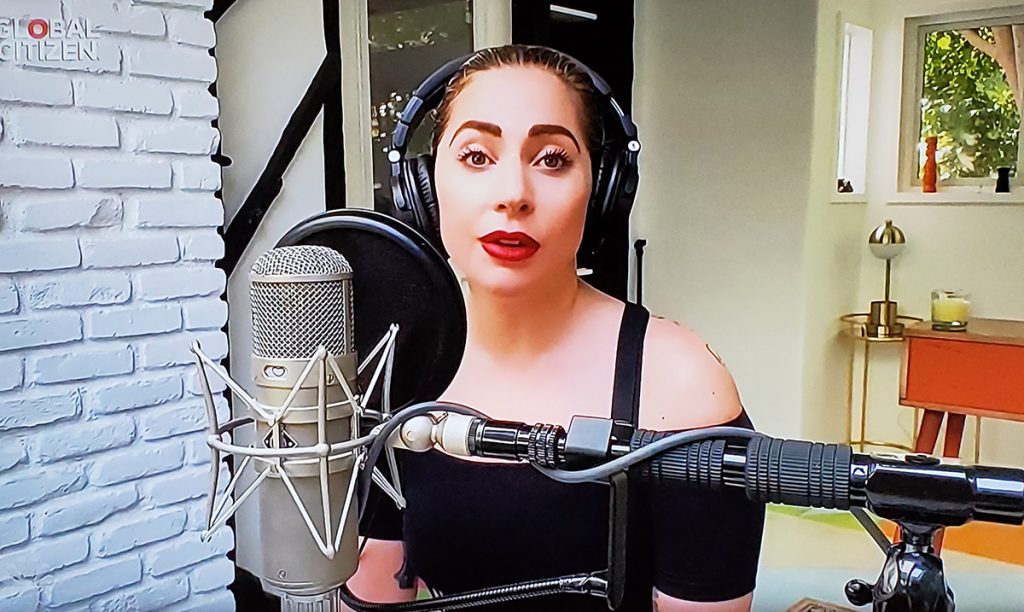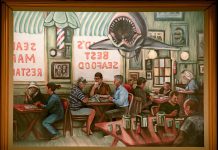
By Simone Goldstone | Special to the NB Indy
In mid-March, the music industry came to a screeching halt.
While artists and labels scrambled to find solutions, music venues were left floundering in the wake of the virus. With no concert tickets to sell, many independent venues were left with no way to pay rent and the prospect of shutting down.
What does that mean for the future Southern California’s music venues? While events like the annual Concerts on the Green at the Newport Beach Civic Center are cancelled for the foreseeable future, many of Newport Beach’s independent venues have been able to stay afloat through food sales.
Small, independent Newport Beach dives like the Blue Beet and Campus Jax serve food and beverage. Through Postmates and take-out, they’ve been able to stay open for business and will be able to welcome performers once restrictions on gatherings have been lifted (although Campus Jax recently began presenting concerts in its parking lot).

For music-only venues, such as the Observatory in Santa Ana, which was bought by LiveNation, prospects are worse. For now, they’re relying on their parent companies to bail them out of financial hardship. Other venues, such as the iconic Troubadour, have taken to GoFundMe Campaigns.
A legal loophole has been discovered to keep interest and some revenue flowing into certain venues. This technical byway is live streaming, and it just might save some music venues.
Live streaming has had success in pay-per-view concerts in the past, such as Beyoncé’s 2018 Coachella set, which is available via Youtube.
While artists who release livestreams from their homes get most of the benefits, venues that host the livestreams also get a share, and the chance to stay afloat.
Since the onset of self-isolation, organizations have launched concert series in the hopes of funding both Covid-19 relief and the hard-hit music industry.
The iHeart Living Room Concert for America, which was livestreamed on March 29, showcased performances by Billie Eilish, Dave Grohl, and Mariah Carey, among others. The 12-hour virtual concert is available on Youtube.
On April 8, Pickathon launched the series known as “A Concert A Day.” The concert marathon raises money for Covid-19 relief through MusiCares. On June 7, new performances were livestreamed on the Recording Academy’s Facebook page, as well as Amazon and YouTube.
Lada Gaga organized a virtual concert called “One World: Together at Home” on April 18 featuring Elton John, Paul McCartney, Billie Eilish, Stevie Wonder, and others that was shown simultaneously on multiple TV networks including CBS, NBC and ABC. It’s available to watch on YouTube.

The success of these live stream events shows the direction the music industry could go in for the summer. While many tours have been postponed until the fall or later, ideas of virtual tours – where a crew follows an artist from venue to venue and streams each concert – has been widely discussed. While there are pros and cons, virtual tours may help many venues come back from the brink.
Europe has taken the jump with a livestreaming and fundraising platform called United We Stream. The company hosts live music, DJ sets, and performances from a roster of venues across Europe. Those viewing are invited to watch and donate money if they can, either buying merchandise or a “virtual drink.” These donations go directly into keeping the music and nightlife scene afloat. The platform has been shown to be widely successful, raising over 430,000 euros. The funds are divided, with 10 percent of the revenue going to Covid-19 Relief. The next 20 percent goes to host venues. A further 20 percent goes into an emergency support fund for venues that find themselves on the brink of closure, and the majority of revenue goes to the artists.
Why America hasn’t taken part in a nation-wide project like this? Instead, independent venues are left with furloughed employees and must survive day-by-day with hopes of reopening. Even if restrictions are lifted, there’s no way to tell if concertgoers will return given the risk of coronavirus infection.
Even so, venues have been working independently to stream concerts or series of concerts of local or touring acts. The trend has been able to keep several venues up and running.
For example, a venue called the Hideout in Chicago has been hosting live streamed shows, and splits the revenue with 20 percent going to the venue, and 80 percent to the artist.
Some local venues in Southern California have taken their own approach to livestreaming. The Coach House has managed to keep some employees in work and their doors virtually open through a live streamed entertainment show. Broadcasted on alerttheglobe.com, the show features jokes, discussions, live music, and interviews. The venue hopes to broadcast live shows every Saturday evening.
While the Coach House was hit hard by the economic crisis, impacted by a loss of $500,000, owner Gary Folgner aims to entertain the public during these trying times. His live show providing both relief from the frustration and uncertainty of the health-crisis, and financial relief to a small crew of employees who work to make the show happen.
Local Orange County venues such as the Observatory remain closed, having rescheduled most of their shows. With debate of live streaming being the future of the music industry, the final say is still up in the air. For the Observatory, which prizes itself on the intimacy and communal feel of the venue, it’s easy to see that live streaming might miss the point.
“I would only watch very specific people because it’s obviously not the same watching from home,” says SoCal-native Maggie Silverman, “However, being able to tune-in and still feel like what I care about has a space and future might help me feel connected in these very uncomfortable times.”
For the future of music venues, medical science will have the final say. If safely reopening doesn’t cause a detrimental spike of cases, concerts may resume in the fall. Until then, live streaming is a viable way for venues to scrape by until live concerts can safely return to the spotlight.




